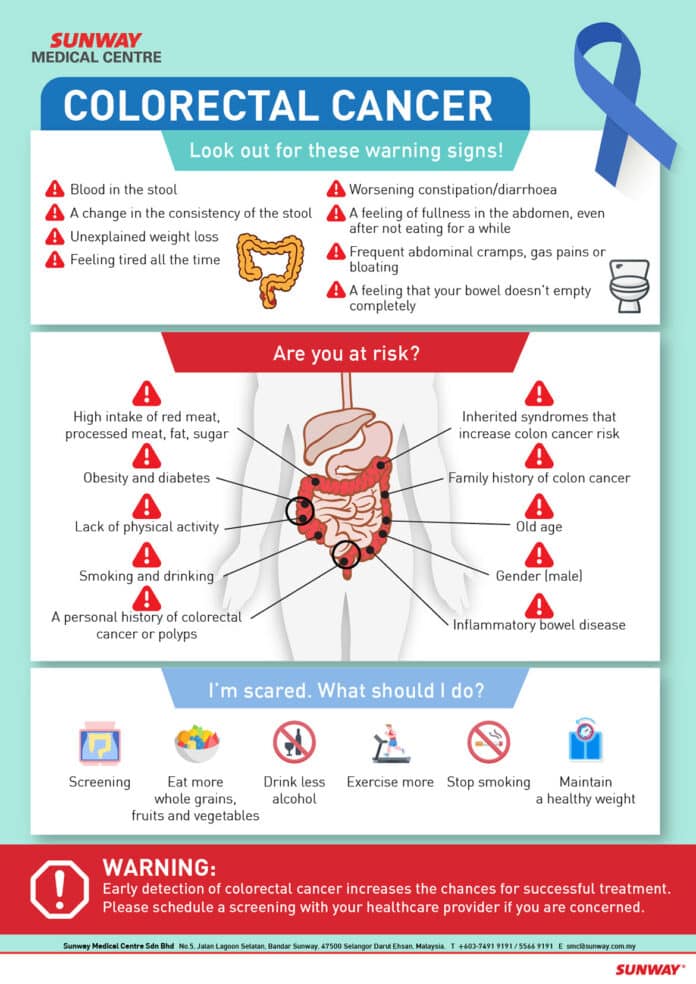
Colon Cancer on the Rise: What Every Young Adult Should Know
Colon cancer, also known as colorectal cancer, is slowly becoming a prevalent healthcare concern among young adults. Traditionally seen as a disease that affects older individuals, recent studies indicate a disturbing increase in the number of cases occurring in younger age groups. This alarming trend highlights the importance of awareness and education, as well as the urgent need for preventative measures and early detection.
Firstly, let us understand what colon cancer is. It originates in the colon or rectum, both parts of the large intestine. Often starting as small, noncancerous polyps on the inner lining of the colon or rectum, it slowly progresses to a malignant tumor if left untreated. Colon cancer is one of the most common cancers worldwide, but due to its association with older age, it has received limited attention among young adults until recently.
What is causing this surge of colon cancer in younger individuals? Several factors contribute to this concerning rise. Sedentary lifestyles, unhealthy eating habits, and obesity all play a role in increasing one’s risk of developing this disease. Modern-day diets, characterized by high consumption of processed foods, excessive red and processed meat, and insufficient intake of fruits, vegetables, and dietary fiber, have been linked to a higher risk of colon cancer. Additionally, lack of physical activity and increasing levels of stress contribute to the development of this condition.
Furthermore, studies have shown a connection between early-onset colon cancer and genetic predisposition, as well as underlying health conditions. Individuals with a family history of colon cancer or inherited genetic mutations like Lynch syndrome or familial adenomatous polyposis (FAP) are at a higher risk. Additionally, those with inflammatory bowel diseases such as Crohn’s disease or ulcerative colitis may be more susceptible to developing colon cancer.
Recognizing the symptoms and understanding when to seek medical attention is crucial for early detection and successful treatment. Common symptoms of colon cancer include persistent changes in bowel habits, such as diarrhea, constipation, or a change in stool consistency, blood in the stool, abdominal pain or cramps, unintended weight loss, and fatigue. While these symptoms may be associated with other less severe conditions, it is essential to consult a healthcare professional if any persist for an extended period or are accompanied by concern.
Screening for colon cancer is recommended for all adults aged 50 and above. However, with the increasing cases among young adults, it is essential to consider earlier screening for individuals with a family history of colon cancer, genetic predisposition, or underlying health conditions. Regular screening helps identify precancerous polyps or cancerous growths early on, significantly increasing the chances of successful treatment and improving survival rates.
Several screening methods are available, including simple at-home tests for occult blood in the stool, flexible sigmoidoscopy, colonoscopy, and virtual colonoscopy. A colonoscopy is considered the gold standard for colon cancer screening as it allows for visualization of the entire colon and rectum and the removal of polyps during the procedure.
Promoting a healthy lifestyle and reducing risk factors are essential in combating the increasing occurrence of colon cancer in young adults. A diet rich in fruits, vegetables, whole grains, and lean proteins can help decrease the risk. Regular exercise and weight management also play a significant role in reducing the likelihood of developing this disease. Additionally, avoiding smoking and excessive alcohol consumption can help minimize the risk of colon cancer.
Education and awareness are key in addressing this rising concern. Young adults need to be informed about the potential risks and symptoms of colon cancer. Public health campaigns aimed at spreading awareness and encouraging early detection and prevention should be prioritized. Informative resources, such as brochures, websites, and social media platforms, can play a vital role in providing accessible and comprehensive information to young adults.
In conclusion, the surge of colon cancer in young adults is a significant cause for concern. Sedentary lifestyles, unhealthy eating habits, genetic predisposition, and underlying health conditions all contribute to this alarming trend. Raising awareness, promoting early detection through regular screening, and implementing lifestyle changes can help combat the rising occurrence of colon cancer among young adults. By prioritizing education and prevention, we can strive to reduce the burden of this disease in the coming years.

















